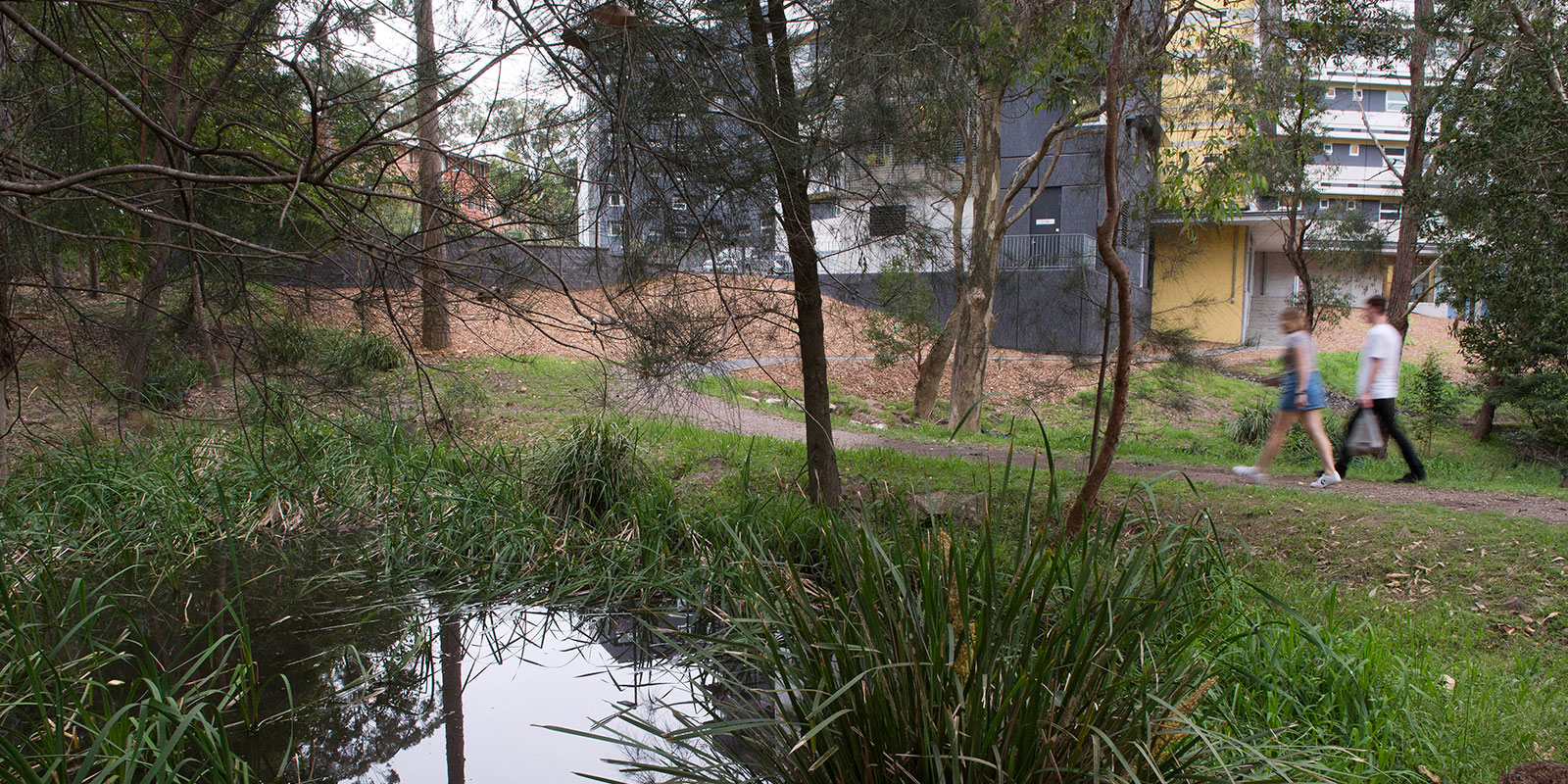

Goal 3:
Good Health and Well-being
Current Collaborations with Health Institutions

The University of Newcastle collaborates with health institutions at the local, national, and global levels to improve health and wellbeing outcomes. A key partner is the Hunter Medical Research Institute (HMRI)—a leading regional medical research centre operated in conjunction with the Hunter New England Local Health District. Together we address pressing health challenges through research, clinical trials, public health programs, and translational medicine. Below are recent examples that highlight our commitment and impact.
Major Steps in 2024 / Early 2025
- Health Innovation Partnership with HMRI
In late 2024, HMRI, Newcastle Permanent, and the University of Newcastle formalised a $2 million partnership to advance medical research, support local research talent, and translate discoveries into real‑world outcomes. This includes establishing an Innovation Accelerator and recognising emerging researchers via the Newcastle Permanent Emerging Innovator Award, bridging researchers, clinicians, industry, and investors to benefit the Hunter region. - ‘Research Our Way’ – First Nations Health Research Strategy
In May 2024, we launched a sector‑first collaborative strategy for Indigenous health research—‘Research Our Way’. This effort involves the University, HMRI, the Hunter New England Local Health District, Awabakal Limited, and local Aboriginal community stakeholders. It’s designed to ensure Aboriginal people are centred in the co‑design, governance, and leadership of research impacting their communities. - NHMRC Grants to Tackle Critical Health Challenges
In early 2024, nine researchers from HMRI and the University secured over AU$13.5 million in National Health and Medical Research Council (NHMRC) funding. These grants support projects across a wide spectrum of health issues. - Triple E Project to Support Adolescent Engagement in Health Apps
The Healthy Minds Research Program (HMRI, University of Newcastle and University of Sydney) launched the Triple E Project in mid‑2024. This project seeks to improve how adolescents engage with health apps, aiming to enhance physical and mental health outcomes by increasing accessibility, usability, and relevance of digital tools. - Strengthening Pacific Public Health Capacity
A long‑standing University/HNELHD partnership—focused on field epidemiology, disease surveillance, and outbreak response in the Pacific region—was awarded AU$7.5 million in 2024 to continue its work. This reflects our impact beyond Australia, contributing to global health security and capacity building in neighbouring countries. - nib Foundation Support for Local Research
The nib Foundation granted approximately AU$1 million in 2024 for three research initiatives via HMRI. These projects address chronic disease, mental health, and orthopaedic outcomes (knee replacements), including work led by University of Newcastle researchers in precision medicine. - Clinical Trials & Translational Infrastructure
HMRI, together with Hunter New England Local Health District and the University, continues to support clinical trials across the region, leveraging our research ecosystem to advance treatments. The Health Innovation Living Lab, situated at John Hunter Hospital, is a dedicated space allowing clinicians, students, researchers and industry to collaborate on challenges such as digital health, healthcare sustainability, medical technology and operational innovation. - Telestroke Team Excellence
HMRI’s Telestroke Team (led by UON and HNELHD) was honoured in 2024 as Research Team of the Year. Their work includes pioneering CT perfusion imaging to rapidly assess and triage stroke patients in regional hospitals, enabling remote consultation with specialists and life‑saving treatment where time is critical. - Expanding Health Workforce & Rural Health Access
We are contributing to programs that build capacity in rural and regional areas. An example is the Rural Allied Health Educator Pilot Program in Hunter New England, which supports university students and early‑career clinicians, and also a Year 10 Rural Allied Health Work Experience initiative for high school students. These help create pathways into health careers and address workforce shortages. Also, innovative service delivery models like the DAP+ Medibus, a mobile clinic for diabetes care, are extending access to specialist health services in remote and underserved communities.
The University of Newcastle acknowledges the traditional custodians of the lands within our footprint areas: Awabakal, Darkinjung, Biripai, Worimi, Wonnarua, and Eora Nations. We also pay respect to the wisdom of our Elders past and present.